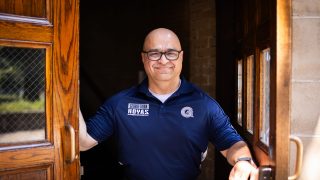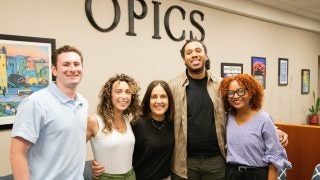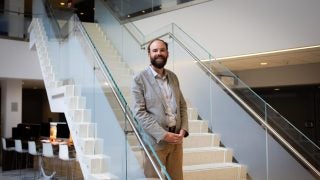Editor’s Note: This interview mentions mental health topics, including suicide. If you or someone you know may be considering suicide or is in crisis, call or text 988 to reach the Suicide & Crisis Lifeline.
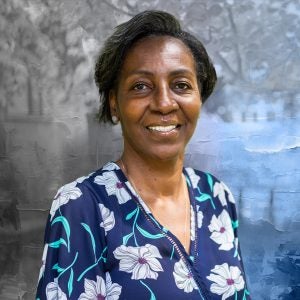
For many years, Denise English was the first face students would see upon entering Georgetown’s Counseling and Psychiatric Services office. She sat behind the front desk and wanted to make sure she left a good impression — even if she was having an off day herself.
“Their needs supersede how I feel when they come in,” she said of greeting students. “I try to let them know that you’re in a good place. You came here. You’re seeking help. And we’re going to do everything we can to help you.”
English has since been promoted to the office manager of CAPS, which provides mental health services for students and the campus community. In her role, she makes sure the office runs smoothly, that the right documents are scanned into students’ files, the schedule is set, that any messages or immediate care are responded to.
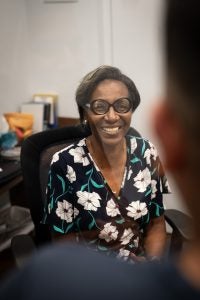
But no matter her role, English wants to ensure that students feel taken care of and loved. It’s an impulse that runs deep, stemming from personal tragedy that occurred in her own family. It also stems, English said, from knowing what it’s like to seek therapy herself.
“To some degree, it’s a shared experience. I’ve needed therapy before in my life, and so I understand the need,” she said.
Before joining Georgetown, English worked for the U.S. Patent and Trademark Office and at a dental company. She joined the university in 2019 and helped the office navigate offering telehealth services during the COVID-19 pandemic.
When she’s not overseeing the CAPS office, English is an avid churchgoer, a mother and grandmother, and a self-described “fashionista,” who’s inspired by 1940s film stars like Betty Davis and Joan Crawford.
Learn more about English, why she was drawn to this role at Georgetown, what she wishes everyone knew about her, and the message she’d give to students.
When I went to interview at CAPS: I liked the environment, and I liked what they were doing, because I lost a son to suicide. He was in his junior year of college. So I felt like I was giving back. I felt like God brought me to this place at this time. The interview went well. Before I got off of Reservoir Road, they called me and said they wanted me to send referrals. So therein lies how I got to Georgetown.
How I approach every student who walks in: I might get teary with this. Every student to walk in, to some degree, reminds me of my son, because they’re seeking help for their mental health. They want to be better. And I know he wanted to be better. I know he fought to be better. So when they enter into my space, I try to be a maternal figure, a calming figure, to let them know that you’re in a good place. You’re seeking help, and we’re going to do everything we can to help you.
It’s rewarding. Because when someone’s looking for help, especially with something out of their control, if they can come into a space and feel like, I’m in the right place, it means so much. My son had that opportunity, but things got the best of him. So I’m really there to give back. I truly am.
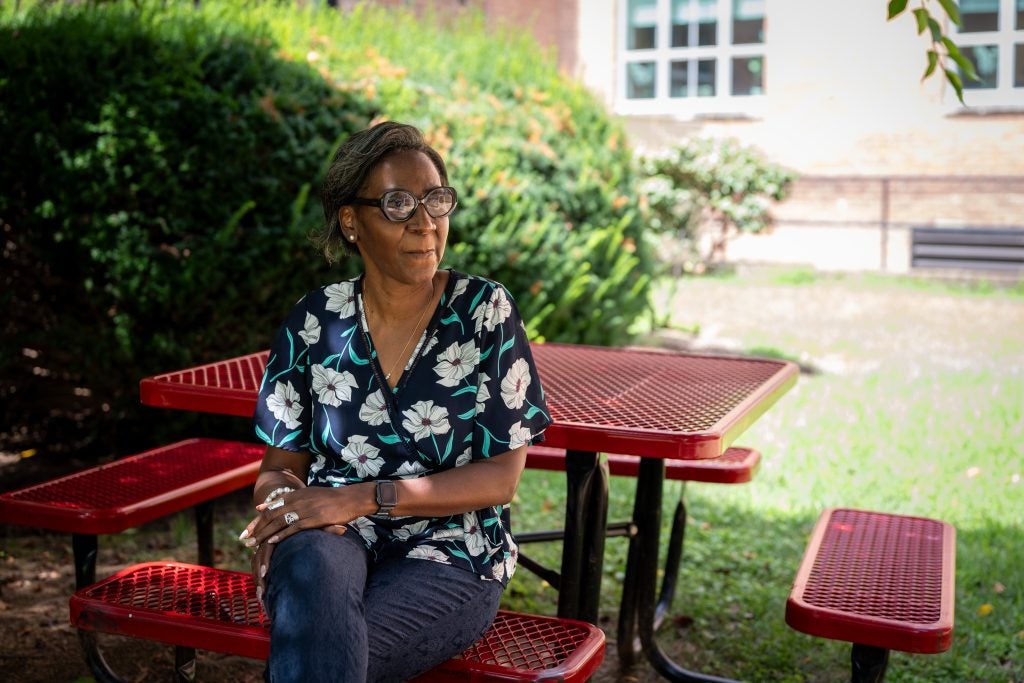
The most rewarding part of the job: I have seen students come back to say thank you to myself, to the therapist, and how much they have grown, how much they have learned, how much they have changed. It’s always rewarding to see students express how much they have changed and how they’re able to do things they once weren’t able to do. To see how they have progressed … It’s beautiful.
One thing I always keep on my desk: A box of tissues. I could cry from being happy, or I could have a sad thought and want to blow on my nose. Or if someone’s in my office, I want them to have that option too.
If I’m having an off day: [A student’s] needs supersede how I feel. There’s been times that I come in and don’t feel up to par. But if I’m helping someone, it helps me. It just makes me [go], OK. It’s not about you. It’s about everyone who comes into this space. To some degree, it’s a shared experience. I’ve needed therapy before in my life, and so I understand the need.
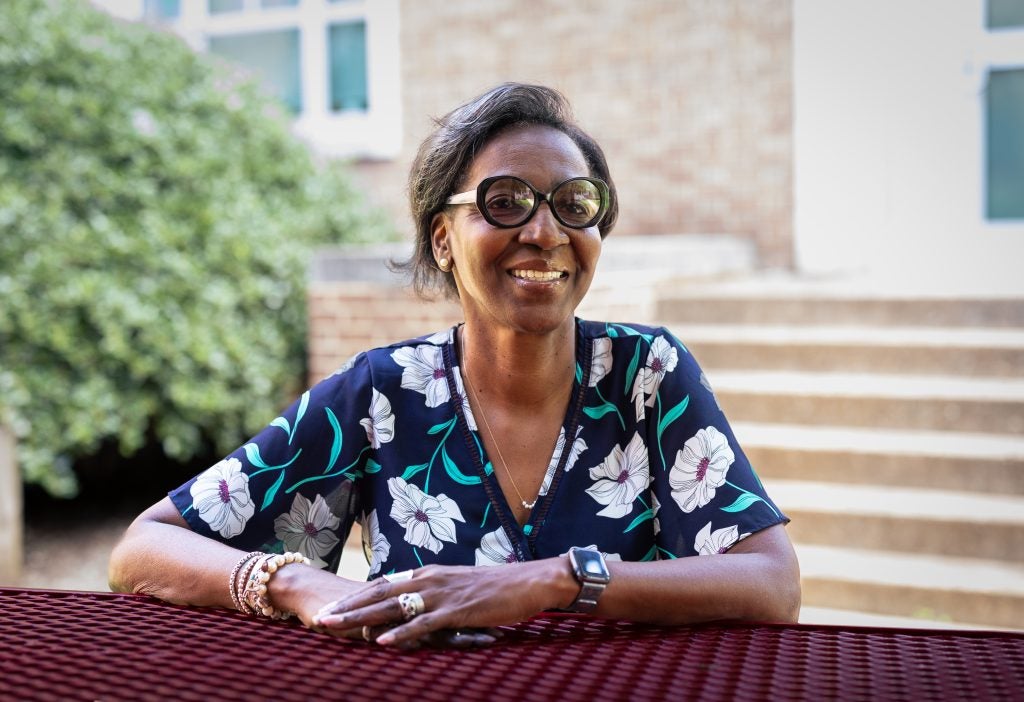
Something I wish everyone knew about me: That I have a passion for people. I go by this motto — and I’m not always successful because I’m human — ‘We owe no man nothing but to love him.’ That’s the least that I can do is show love. I don’t have to like a person’s character, I don’t have to like them at all, but I can give them genuine love if they have a need or show common courtesy and respect. I have a general love for everyone, regardless of who they are, what ethnicity they are, it doesn’t matter.
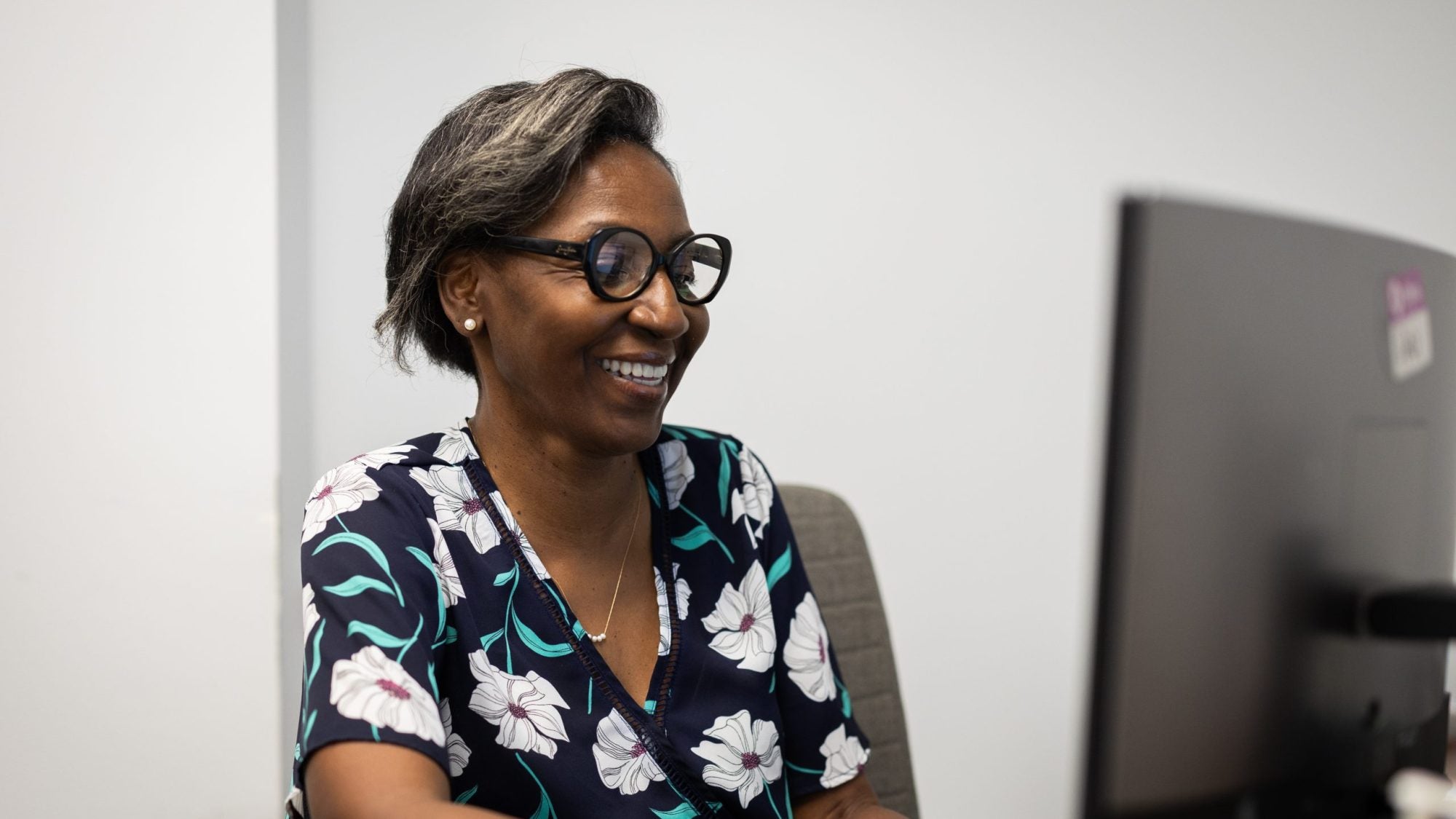
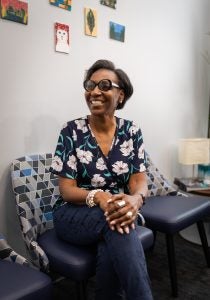 I’d describe my style
I’d describe my style